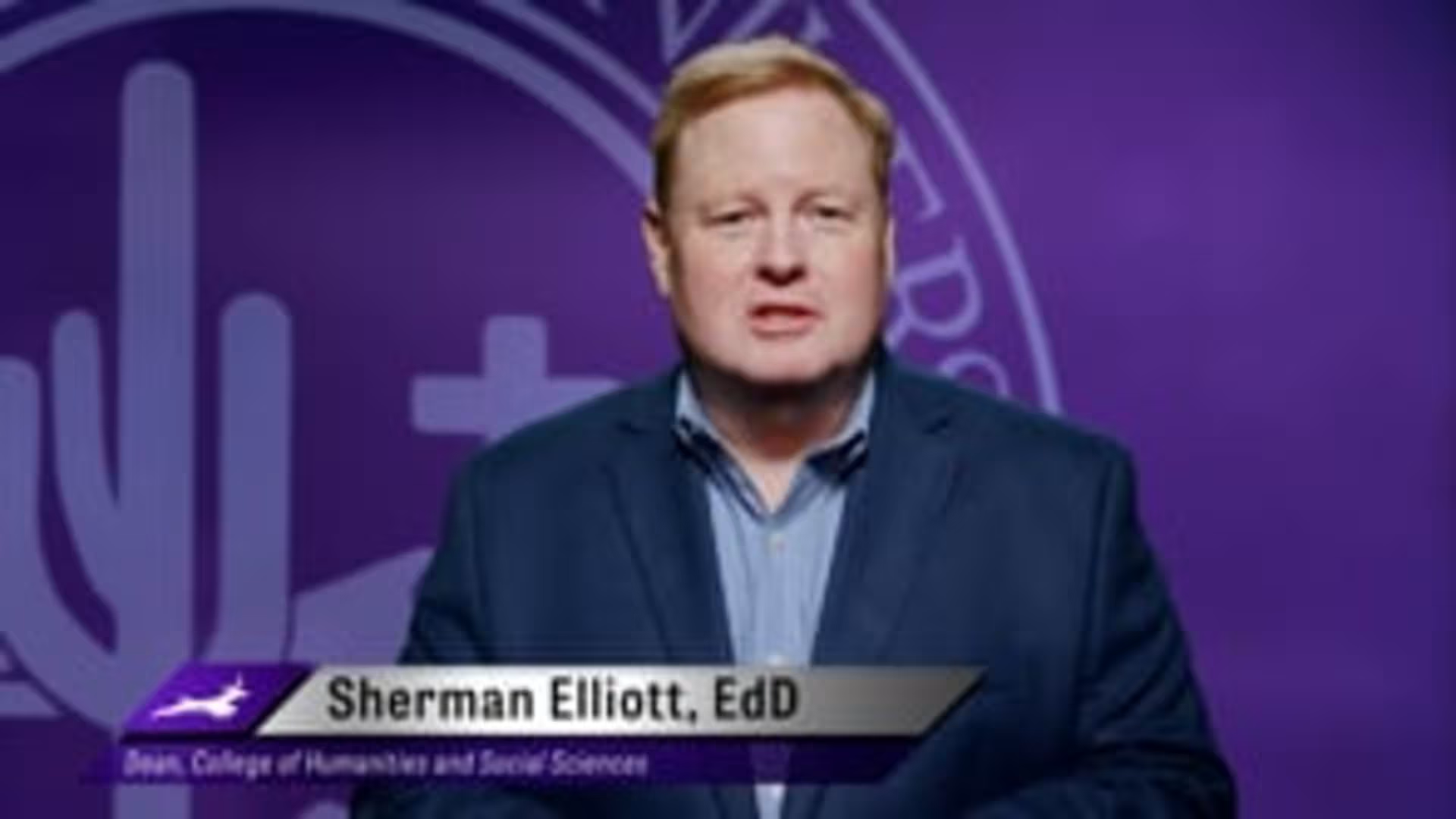Read time 3 minutes
Published on Oct 15, 2021
GCU is proud to offer degrees to help you start your career in the helping professions. To learn more about our Master of Education in School Counseling, Master of Social Work and Master of Science in Clinical Mental Health Counseling degrees explore the video and information below.

Programs Overview
Grand Canyon University's College of Humanities and Social Sciences offers three distinct programs for those interested in the helping professions:
These programs are offered through online and evening cohorts depending on availability. Internships will be completed to provide supervised hands-on experiences. At GCU, we cater to working professionals' schedules so you can pursue your master's degree while also balancing other priorities. Our online and evening students have access to highly-qualified faculty members, administrative leadership, generous scholarship opportunities, technical support and other valuable resources.
School Counseling vs. Social Work vs. Clinical Mental Health Counseling
To understand the differences between each of these programs, let's review the unique opportunities and expectations for each program.
Master of Education in School Counseling Degree
GCU's Master of Education in School Counseling prepares future school counselors with the knowledge and skills to promote equity and access for pre-K through 12th grade students.
School counselors support growth in academic achievement, career and social-emotional development. School counselors also advocate for models of school-based collaboration with school stakeholders.
School counselors help students develop healthy relationship with peers, families and others in the school community.
Students enrolled in the Master of Education in School Counseling program at GCU will complete 25 field experience hours, 100 practicum hours and 600 internship hours for a total of 725 hours.
Faculty at GCU are invested in guiding students in the development of best practices and counselor identity as informed by school counseling ethical and professional standards and the GCU dispositional values.
Master of Social Work
Social workers spend their time with at-risk individuals, families and couples helping them work through and thrive in the face of challenges like homelessness, abuse, poverty—any obstacle that stands in the way of them having their basic needs met.
Social workers help work to identify protective factors that can help improve someone's life and connect them to support services like housing assistance, nutritional counseling or their local social service department.
In addition to passing all of the program coursework, students enrolled in the Masters of Social Work must complete 960 hours of field instruction.
Master of Science in Clinical Mental Health Counseling Degree
GCU’s Master of Science in Clinical Mental Health Counseling program prepares students to become clinical mental health counselors who effectively assess, diagnose, treat and empower culturally diverse populations.
The program will prepare you to integrate models of human growth and development and evidence-based practices while also guiding you to acquire knowledge and skills to meet the diverse mental health needs of individuals, families and couples.
Students complete 100 hours of practicum and 600 hours of internship for a total of 700 clinical hours.
Clinical mental health counselors work in settings such as hospitals, clinics, private practices and community-based organizations.
Faculty at GCU are invested in guiding students in the development of best practices and counselor identity as informed by counseling ethical and professional standards and the GCU dispositional values.
Find the Right Degree for You
Whether you enroll in the Master of Education in School Counseling, the Master of Social Work or the Master of Science in Clinical Mental Health Counseling you will be prepared to effectively impact the helping professions.
To learn more about which program might best support your career goals, fill out the form on this page.





